
Antônio Carlos Brasileiro de Almeida Jobim, also known as Tom Jobim, was a Brazilian composer, pianist, guitarist, songwriter, arranger, and singer. Considered as one of the great exponents of Brazilian music, Jobim merged Samba with Cool jazz in the 1960s to create Bossa nova, with worldwide success. As a result, he is widely regarded as the "father of bossa nova".
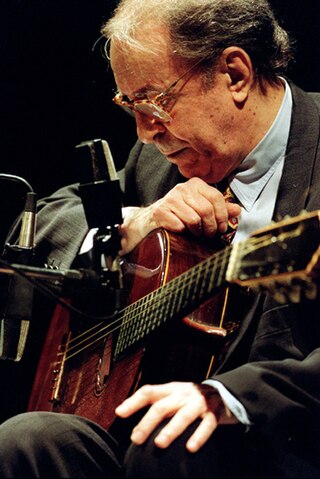
João Gilberto was a Brazilian guitarist, singer, and composer who was a pioneer of the musical genre of bossa nova in the late 1950s. Around the world, he was often called the "father of bossa nova"; in his native Brazil, he was referred to as "O Mito" . In 1965, the album Getz/Gilberto was the first jazz record to win the Grammy Award for Album of the Year. It also won Best Jazz Instrumental Album – Individual or Group and Best Engineered Album, Non-Classical. Nominated at the Grammy 1978 in the category Best Jazz Vocal Performance, album Amoroso, and winner category in Grammy 2001 with João voz e violão Best World Music Album.

Joyce Moreno, commonly known as Joyce, is a Brazilian singer-songwriter and guitarist.

Getz/Gilberto is an album by American saxophonist Stan Getz and Brazilian guitarist João Gilberto, featuring pianist and composer Antônio Carlos Jobim, who also composed many of the tracks. It was released in March 1964 by Verve Records. The album features the vocals of Astrud Gilberto on two tracks, "Garota de Ipanema" and "Corcovado". The artwork was done by artist Olga Albizu. Getz/Gilberto is a jazz and bossa nova album and includes tracks such as "Desafinado", "Corcovado", and "Garota de Ipanema". The last received a Grammy Award for Record of the Year and started Astrud Gilberto's career. "Doralice" and "Para Machucar Meu Coração" strengthened Gilberto's and Jobim's respect for the tradition of pre-bossa nova samba.

Isabel Buarque de Hollanda Gilberto de Oliveira, known as Bebel Gilberto, is an American-born Brazilian popular singer often associated with bossa nova. She is the daughter of João Gilberto and singer Miúcha. Her uncle is singer/composer Chico Buarque.
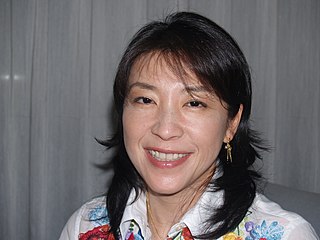
Lisa Ono is a Brazilian Japanese bossa nova singer.
"Waters of March" is a Brazilian song composed by Antônio Carlos Jobim (1927–1994) in 1972. Jobim wrote both the Portuguese and English lyrics. The lyrics, originally written in Portuguese, do not tell a story, but rather present a series of images that form a collage; nearly every line starts with "É...". In 2001, "Águas de março" was named as the all-time best Brazilian song in a poll of more than 200 Brazilian journalists, musicians and other artists conducted by Brazil's leading daily newspaper, Folha de S.Paulo. It was also voted by the Brazilian edition of Rolling Stone as the second greatest Brazilian song.
Isabelle Antena is a French singer and songwriter, and founder of the electro-samba group Antena.
"Manhã de Carnaval", often referred to as "Black Orpheus", is a song by Brazilian composer Luiz Bonfá and lyricist Antônio Maria.

Marcos Kostenbader Valle is a Brazilian singer, songwriter, and record producer. He has produced works in many musical styles, including bossa nova, samba, and fusions of rock, soul, jazz, and dance music with Brazilian styles. Valle is credited for popularizing bossa nova in the 1960s.

Cannonball's Bossa Nova is a 1962 album by jazz musician Julian "Cannonball" Adderley. First released on Riverside in 1963, the album was reissued on Capitol Records several times with different covers and titles.

Jazz Samba Encore! is a bossa nova album by Stan Getz and Luiz Bonfá, released on the Verve label. It is bossa nova in a slower groove. It contains a mix of Jobim standards as well as originals from Bonfá. Performers also include Antonio Carlos Jobim and vocalist Maria Toledo, Bonfá's wife. The painting on the cover is a piece by the influential New York based abstract expressionist Olga Albizu from Puerto Rico.
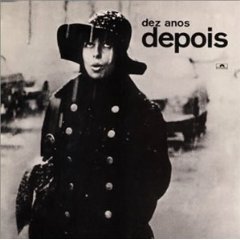
Dez Anos Depois is a 1971 double album of bossa nova standards by Brazilian singer Nara Leão.

Diogo Nogueira is a Brazilian singer and songwriter. He is the son of composer João Nogueira and Ângela Maria Nogueira.
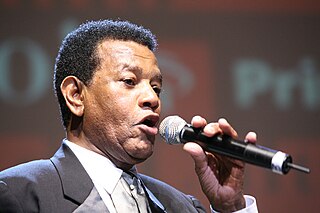
Jair Rodrigues de Oliveira was a Brazilian musician and singer. He is the father of Luciana Mello and Jair Oliveira, who also followed in his footsteps and became musicians.
Pery Ribeiro was a Brazilian singer of bossa nova, MPB and jazz, active as a singer from 1959 until shortly before his death.

Rozina Pátkai is a Hungarian singer, songwriter and visual artist. She is a vocal artist who has Italian roots and has come to fore with her band playing bossa nova. They have succeeded in many Hungarian and international competitions. She launched her ’Minka’ projects in 2016, with which the all-round artist turns to fine art and to the meeting point of electronic music and poetry. Her husband is Márton Fenyvesi guitarist, composer and producer and has three children: Kamilla, Panna and Rudolf.
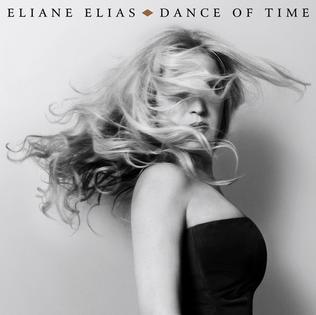
Dance of Time is a 2017 studio album by Brazilian jazz musician Eliane Elias. The album was recorded in Brazil and released on March 24, 2017 via Concord Records. This is her 25th album as a leader. Dance of Time received the Latin Grammy for Best Latin Jazz Album at the 18th Annual Latin Grammy Awards.

Luiza Yara Lopes Silva, better known as Yzalú, is a Brazilian singer-songwriter and guitarist. She drew attention when interpreting the song "Mulheres Negras" (2012). With the participation of the rapper Eduardo, evidencing the reality of the women in Brazil, the music became symbol of the black feminism in the country.
"O Morro Não Tem Vez", also known as "Favela", "O Morro", and "Somewhere in the Hills", is a bossa nova jazz standard composed by Antônio Carlos Jobim with lyrics written by Vinicius de Moraes. The English lyrics were written by Ray Gilbert.














